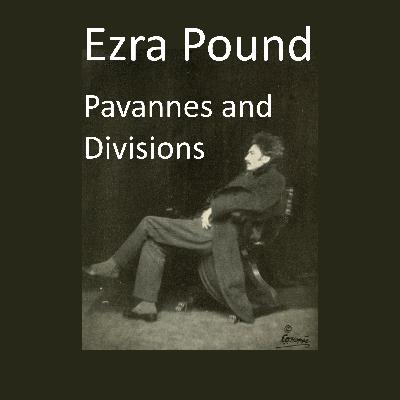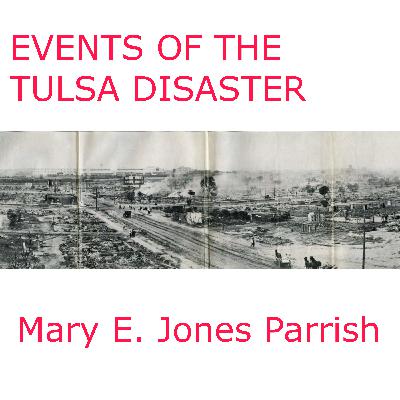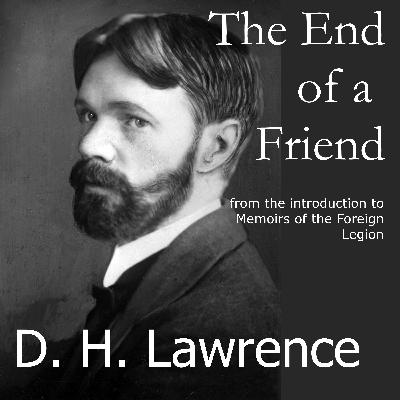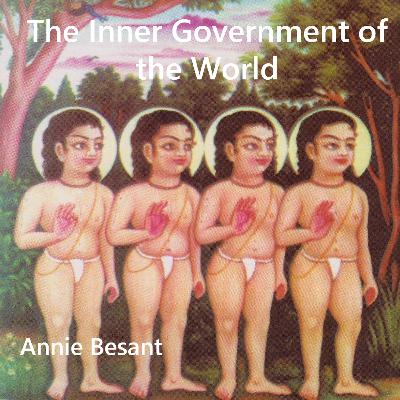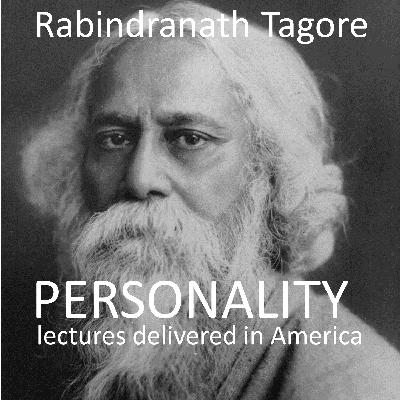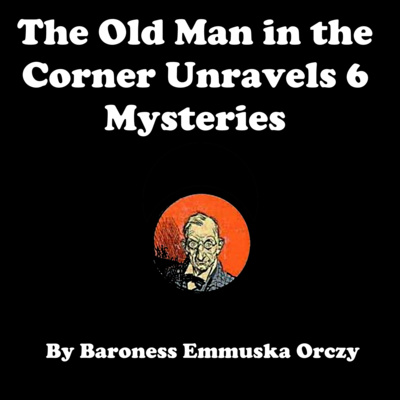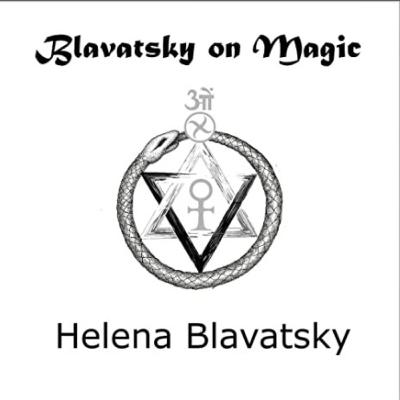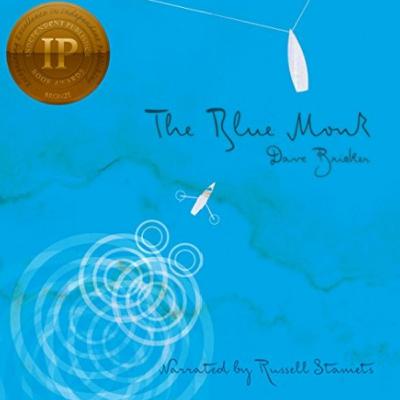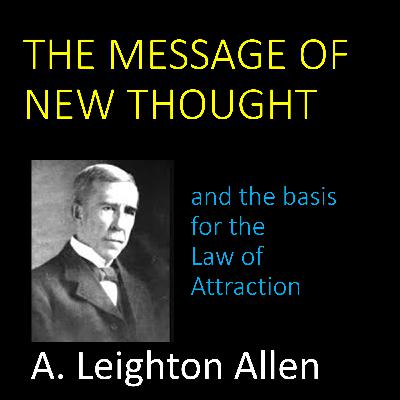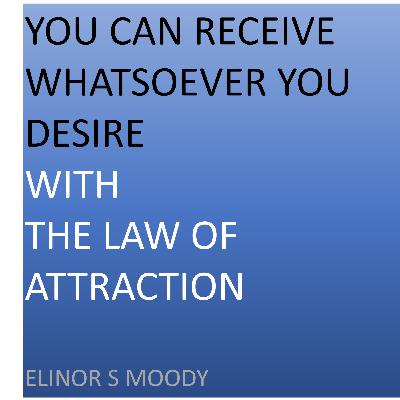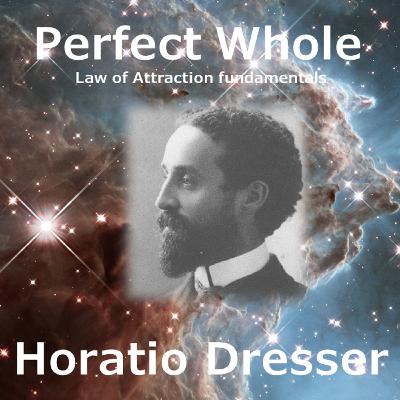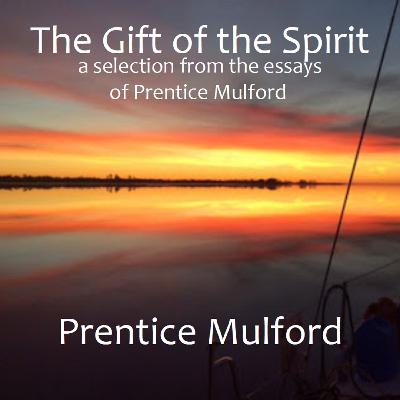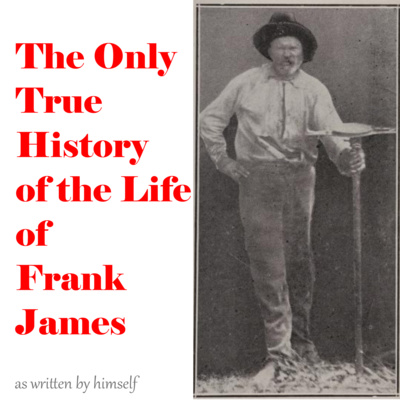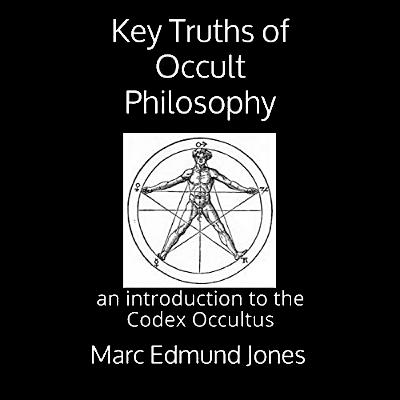Discover Sleepy Time Travels
Sleepy Time Travels

Sleepy Time Travels
Author: Russell Stamets
Subscribed: 6Played: 80Subscribe
Share
© Russell Stamets
Description
Welcome to Sleepy Time Travels. Epic sagas, folk tales, mystic wisdom, spiritual evolution, these forgotten texts are the perfect balm for your fevered brain, soothing it away from whatever ridiculousness the day has wrought.
30 Episodes
Reverse
Links for audiobook, print and kindle editions. Russell's audiobook catalog.
There was a rivalry among these three storytellers, for they came from different tribes, and the legends of their people were not the same.
Tecla was from Baja, or Lower, California, where Juanita and Antonio's mother had once lived. Old Klayukat's tribal home was to the far north, at Puget Sound. He had been brought down by a king's vessel and given into the charge of the padres at the mission of San Francisco d'Assisi. There he had become a Christian and had been taught the saddler's trade. He had been employed by the children's grandfather ever since their father was a little boy. Wantasson was from Alta California, which is the California that now belongs to the United States. Before he had become Christianized at the mission, he had wandered about and so knew stories from the different tribes of the country.
To Juanita and Antonio it mattered little from what places the stories came—whether from the northern Oregon Country, Baja California, or their own Alta California. All the tales were fascinating to them, and they were always eager to do any favor for Wantasson, Klayukat, or Tecla in the hope of winning a story in return.
I HAVE seen the God Pan and it was in this manner: I heard a bewildering and pervasive music moving from precision to precision within itself. Then I heard a different music, hollow and laughing. Then I looked up and saw two eyes like the eyes of a wood-creature peering at me over a brown tube of wood. Then someone said: Yes, once I was playing a fiddle in the forest and I walked into a wasp's nest.
Audiobook , Kindle and print editions
This epic narrative poem focuses on the days after the end of the Civil War through the fall of 1877, describing the leaders and events of the Indian Wars, including Red Cloud, Sitting Bull, Crazy Horse, Dull Knife, Spotted Tail, the Fetterman Massacre, the Wagon Box Incident, and the Battle of Little Big Horn.
Audiobook, Kindle and Print Editions
An account of the Tulsa race riot of 1921 in which White people attacked and murdered Black residents in the Greenwood neighborhood burning and looting. Includes a collection of shorter witness testimonials.
Audiobook, Kindle and print editions
This overlooked work of Lawrence contains both beautiful descriptions of his travels in Italy during this period as well as a thoroughly engrossing portrait of a man, M, who he meets and can't quite get away from for months until the end.
This true story grabs at you on several levels. Originally published as the introduction to M's work, Memoirs of the Foreign Legion, it stands on its own.
Audiobook, Kindle and print editions
I want to put before you, if I can in these three lectures, a certain view of the world, and of the way in which that world is guided and directed. As this meeting is a public meeting, there is one statement I think that I ought to make, which it would not be necessary to make, if it were composed of members of the Theosophical Society. It is important to remember that in the Theosophical Society we have no authority on matters of opinion.
Every member is free to work out his own theory of life, to choose ones own line of thought, and no one has the smallest right to dictate to any member what he should choose or what he should think. In the Theosophical Society there is only one condition which binds a member, namely, the recognition of Universal Brotherhood. Outside that every member is absolutely free. He may belong to any religion, or he may belong to no religion at all. If he belongs to a religion, he is never asked to leave it, to change it, but only to try to live up to its teachings of spiritual life, recognizing the unity of all, to live in harmony with people of his own faith and people of other faiths. When we speak of Theosophy, we may take the word in one of two senses.
The first, what it should be to the individual. In that sense there is no difference between Theosophy and the ancient Brahmavidya of India, the Para Vidya, and the Gnosis of the Greek - no difference at all.
Audiobook, Kindle and print editions
We are face to face with this great world, and our relations to it are manifold. One of these is the necessity we have to live, to till the soil, to gather food, to clothe ourselves, to get materials from nature. We are always making things that will satisfy our needs, and we come in touch with nature in our efforts to meet these needs. Thus, we are always in touch with this great world through hunger and thirst and all our physical needs. Then, we have our mind; and our mind seeks its own food. The mind has its necessity also. It must find out reason in things. It is faced with a multiplicity of facts, and it is bewildered when it cannot find one unifying principle which simplifies the heterogeneity of things. Man's constitution is such that he must not only find facts, but also some laws which will lighten the burden of mere number and quantity.
Audiobook, Kindle and print editions
Who reads philosophy books? Not many. Maybe that's why George Santayana hid the medicine in sweeter wrappers. His The Last Puritan is an example. This week's episode is a selection from another venerable literary form, the dialog. It reminds me of the show from decades ago where a group of famous people from history were in a Sunday morning talk show-like format. In his book, "Dialogues in Limbo," Santayana features a pilgrim from our time who has found his way into a place where he can have some pretty serious discusions with Socrates, and others.
Audiobook, Kindle and print editions
Mysteries are, of course, perennial favorites, and come in a variety of flavors. This weeks' hundred year old sample is in the british tradition, one of a series of tales featuring armchair sleuth, The Old Man in The Corner, a curious fellow that our author, the narrator, consults whenever she's curious about some case in the news. The old man is always miles ahead of the police, who sometimes never find the answer that he has. The Mystery of the Russian Prince is from The Old Man in the Corner solves six Mysteries by Baroness Emmauska Orczy and is a very cozy yarn to snuggle up to.
Audiobook, Kindle and print editions
Among the numerous sciences pursued by the well-disciplined army of earnest students of the present century, none has had less honors or more scoffing than the oldest of them—the science of sciences, the venerable mother-parent of all our modern pigmies. Anxious in their petty vanity to throw the veil of oblivion over their undoubted origin, the self-styled positive scientists, ever on the alert, present to the courageous scholar who tries to deviate from the beaten highway traced out for him by his dogmatic predecessors, a formidable range of serious obstacles.
As a rule, occultism is a dangerous, double-edged weapon for one to handle who is unprepared to devote his whole life to it. The theory of it, unaided by serious practice, will ever remain in the eyes of those prejudiced against such an unpopular cause an idle, crazy speculation, fit only to charm the ears of ignorant old women. When we cast a look behind us and see how for the last 30 years modern spiritualism has been dealt with, notwithstanding the occurrence of daily, hourly proofs which speak to all our senses, stare us in the eyes, and utter their voices from "beyond the great gulf", how can we hope, I say, that occultism or magic will easily gain ground where spiritualism is scoffed at?
One who rejects a priori or even doubts the immortality of man's soul can never believe in its Creator; and, blind to what is heterogeneous in his eyes, will remain still more blind to the proceeding of the latter from homogeneity. In relation to the Kabalah, or the compound mystic text-book of the great secrets of Nature, we do not know of anyone in the present century who could have commanded a sufficient dose of that moral courage which fires the heart of the true Adept with the sacred flame of propagandism, to force him into defying public opinion by displaying familiarity with that sublime work.
Audible, Kindle and print editions
Renown for his plays depicting the socio-cultural context of modern society after the fall of Communism, popular playwright Vlad Zografi invites listeners to consider contemporary theater from multiple and mutually enriching and dramatic perspectives. The brilliance of his plays reflect a liberated and live theater in which audiences are drawn into the sentiments and obsessions of characters as diverse as a nameless and bare-footed leper, Russian Czar Peter the Great, on a visit to the court of France and a young Oedipus enthralled by Pythia at Delphi.
Audiobook, Kindle and print editions
In 1989 Dave Bricker set off across the Gulf Stream, in a small sailboat, with $30 in his pocket. His voyages aboard The Blue Monk, through the Bahamas and across the Atlantic to Gibraltar, are recounted in vivid prose. The Blue Monk is a journey of self-discovery set in a world of saturated colors, remarkable people, hazardous reefs, and transcendent beauty. Bricker chronicles a little-known fragment of Miami's history and encourages us all to embrace a world of power and magic that lies only a few steps off the sidewalk.
Audible, Kindle and print editions
New Thought is largely a restatement of old thought, vitalized with new life and meaning from the discoveries of modern psychology and the latest deductions of science. The reader must bear in mind, however, that the Old Thought was suppressed in the Western Hemisphere for nearly two thousand years; for the first time it is sending its illuminating rays to gladden the Western world.
This law, as illustrated by many live experiences, is to me, by no means an untried theory. Rather, I have, each and every time, found it so practical and reliable in solving the many difficult problems coming to me for solution that it is with the utmost confidence and gladness that I pass it on to others likewise desirous of finding a safe and sure road to satisfaction.
Audiobook, Kindle and print editions
Life is wonderfully simple. One efficient energy or spirit permeates all that exists. A few universal laws characterise this energy in all phases of its infinitely varied manifestation. To feel this spirit as a living reality within, to understand these simple laws and adapt life to wise obedience to them - this it is to possess the greatest peace, happiness, and power of doing good. The entire secret could be told in a few words...
Audiobook, Kindle and print editions
The history of Taoist philosophy may be conveniently divided into three stages: the primitive stage, the stage of development, and the stage of degeneration.
The first of these stages is only known to us through the medium of a single semi-historical figure, the philosopher Lao Tzu, whose birth is traditionally assigned to the year 604 BC. Some would place the beginnings of Taoism much earlier than this, and consequently regard Lao Tzu rather as an expounder than as the actual founder of the system; just as Confucianism — that is, a moral code based on filial piety and buttressed by altruism and righteousness — may be said to have flourished long before Confucius.
The two oases, however, are somewhat dissimilar. The teachings of Lao Tzu, as preserved in the Tao Te Ching, are not such as one can easily imagine being handed down from generation to generation among the people at large. The principle on which they are based is simple enough, but their application to everyday life is surrounded by difficulties. It is hazardous to assert that any great system of philosophy has sprung from the brain of one man; but the assertion is probably as true of Taoism as of any other body of speculation.
Audiobook, Kindle and print editions
A supreme power and wisdom govern the universe. The supreme mind is measureless and pervades endless space. The supreme wisdom, power, and intelligence are in everything that exists from the atom to the planet. The supreme power and wisdom are more than in everything. The supreme mind is everything. The supreme mind is every atom of the mountain, the sea, the tree, the bird, the animal, the man, the woman. The supreme wisdom cannot be understood by man or by beings superior to man, but man will gladly receive the supreme thought and its wisdom, and let it work for happiness through him, caring not to fathom its mystery. The supreme power has us in its charge, as it has the suns and endless systems of worlds in space.
As we grow more to recognize this sublime and exhaustless wisdom, we shall learn more and more to demand that wisdom, draw it to ourselves, make it a part of ourselves, and thereby be ever making ourselves newer and newer. This means ever perfecting health, greater and greater power to enjoy all that exists, gradual transition into a higher state of being and the development of powers which we do not now realize as belonging to us.
Audiobook, Kindle and print editions
This little book appeals, perhaps, to the Eastern rather than to the Western type of mind, but so many souls trained in the East are now being reincarnated in the West that it may find friendly [listeners] away from the land of its birth.
Addressed to a purely Hindu audience, the lectures contain many common Sanskrit words, familiar to every Hindu, that may sound strange in the ears of [listeners] of other faiths; but it seems better to retain them, for those who object to them will object to the whole Eastern coloring of the booklet, and the changing of a few words would not shape the lectures to meet their views.
To some, it will carry a message deeper and sweeter than the more conventional and colder West is yet ready to welcome. For such souls it was spoken; let others pass it by.
Annie Besant
Audible, Kindle and print editions
"To those in whose hands this book finds it way, I wish to convey my greetings, and to assure you that it has been a great pleasure to me to be spared, and able to write the only authentic history that has ever been written by a member of the noted, or as some might express it, 'notorious' James Brothers gang, whose operations extended over a time, beginning with the outrages which were perpetrated on the family of the parents of Jesse and Frank James, by the Quantral band, which will be narrated in the pages which are to follow, and going through the different operations of the Jesse and Frank James gang of outlaws, ending with his death, which occurred at Wayton, Newton county, Arkansas, on the 14th day of February, 1926."
This history was written by Frank James himself, at odd times, during his latter years and was, two years before his death, entrusted to his daughter, Mrs. Sarah E. Snow, of Wayton, Ark., with his request that it be kept a secret until after he had passed away, after which it was his desire that it be published to the world, and his identity disclosed, in order that the world might learn some of the true facts concerning the whys and wherefores leading up to and the causes which forced these two brothers into outlawry.
Audible, Kindle and Print editions
The investigator who seeks to develop exact and careful conception of realities in a realm as temperamental as the occult faces from the beginning unsuspected difficulties. Every defining term as well as every accepted teaching and doctrine is variously interpreted by the different groups of students. Here is a field in which the most sincere teachers are swept into narrow prejudice by the sheer fire of their enthusiasm and so seem universally to emphasize their differences one from the other when they could as well build upon a meeting ground of common understanding.
Occultism, occult science, and occult philosophy in modern usage loosely refer to all forms of mysticism or magic and to all esoteric or theosophical philosophy and research. With metaphysics which is used in an equally broad but less particular sense, they are the general terms for the field. Theosophy is seldom employed except when capitalized in reference to a particular group of societies.
Audible, Kindle and Print editions



